The date 25th May will live long in the hearts and minds of Liverpool fans everywhere. Not only on this date in 1977 did Liverpool Football Club finally join Europe’s elite by claiming their first European Cup triumph in Rome, but one year ago, number five was added to the previous quartet in arguably the greatest Cup final in history. Of course we all know the details, our DVDs and videos of the match are worn out and our tales are familiar to those who are willing to listen. Frankly, I can’t wait to bore my grandkids with tales of the defiant “You’ll Never Walk Alone” echoing in the Turkish sky, those magical six minutes, Dudek’s impossible save from Shevchenko and the penalty shoot-out that ensured “Old Big Ears” would have a permament home in L4. For many, including myself, it was simply, the greatest night of their lives and one year on, the true significance of that glorious triumph in Istanbul runs deeper than the 120 minutes that was played a year ago this month.
As an 18 year old, the names Kenny Dalglish, Phil Neal and Graeme Souness are confined to history books and videos, as are the countless title triumphs and other trophy wins our club has enjoyed over the years. I, like many others growing up in the post-Heysel years have never seen the glory days of the 70s and 80s. For countless times, my dad and grandad have recounted stories from before my time, stories which sound like they belong in some story and after watching us in the 90s and towards the end of Houllier’s reign, seemed so difficult to comprehend. Stories of Dalglish scoring the winner at Stamford Bridge to clinch the league title as well as Kevin Keegan’s double to sink Newcastle in the 1974 FA Cup Final and Alan Kennedy’s goal at the Parc des Princes seemed the stuff of fairy tales. I, and I’m sure many other supporters of a similar age, often embarked on a journey of self-doubt. Despite being told by those lucky enough to have been around in the glory days of Shankly, Paisley and Fagan that we would rise from the ashes, in my heart of hearts, I felt we would always be doomed to mediocirty with success being regarded as a 4th placed finish and maybe a League Cup win to sit alongside it. I even thought that it was conceivable that we could go the way of Aston Villa, Tottenham and a certain club from across the Park and become a struggling one-time giant relying on tales of the glory days. Sure we had the treble in 2001 and it was fantastic but it ultimately proved to be a false dawn before we returned to the under-achievement we had experienced under Souness and Evans after Houllier had bravely recovered from open heart surgery. Istanbul changed all of that. Finally, I and many others had one of those moments that would reverberate around every pub, workplace and schoolyard to anyone who would care to listen. One of those moments which would constantly get recited to various kids and grandkids on numerous occassions and one of those moments which ensured that the younger generation of Liverpudlians could die happy having seen their team triumph in the final of the world’s greatest cup competition in such an exhilirating manner.
Not only is the true significance of our victory in Istanbul confined to the LFC archives of the younger generation of fans. As a club, what winning number five has done for us apart from adding an extenstion to the trophy cabinet should never be forgotten. After being cast as the black sheep of English football after the Heysel disaster of 1985, Istanbul marked our return to football’s top-table after 20 years in the European wilderness. Of course we are all reminded by our blue neighbours that “if it hadn’t have been for Heysel we’d have won the European Cup and be the greatest team in the history of footabll” amongst other jibes but in truth, Thatcher’s veridict in the wake of the treagedy harmed us severely. Fair enough, Heysel had more damaging effects for clubs like Luton Town and Oxford United as well as the now extinct Wimbledon who never experienced European football, but the fact is that we were denied the chance to add to our European collection and it is not unfeasible to suggest that we could be looking at at least seven or eight European Cups on our honours list. Winners of the European Cup in our absence include such luminaries as Porto, Steaua Bucharest and Red Star Belgrade and a lad I know conceded to me that his biggest regret is that he never got to see the team of the late 80s participate in the European Cup. On 25th May 2005, everything came full circle with our return from the footballing outpust confirmed. In an instant, horrendous memories of Souness’ managerial reign, Julian Dicks, the white suits of 96 and other shames that have blighted our club were finally put to bed with a decade of demons finally exorcised when Steven Gerrard clasped his hands around that beautiful trophy.
Another factor in making Istanbul more special was that it occurred in an era when history counts for nothing and loyalty is a rare commodity. Since Rupert Murdoch entered the scene in 1992, money has been the single dominant force in football. Proof of this can be found in Abramovich’s Chelsea. In one summer, Chelsea were transformed into genuine title challengers thanks to his deep pockets and despite the success they enjoyed over us following Jose Mourinho’s arrival, notably in the form of a League title and League Cup win, we always maintained that we had the one thing money couldn’t buy- history. The semi-final clash at Anfield had more on the line than just a place in the European Cup Final. It represented a showdown between the old masters steeped in history and tradition and the fashionable young upstarts with money to burn. For many Liverpudlians among the older generation of fans, Istanbul represented a victory for passion and dedication, a throwback to the way football used to be before it was replaced with it’s corporation-like cousin. Number five became a symbol for the good values in football that many felt had disappeared in an age when heavy spending is more often than not rewarded with a heavy trophy haul and reiterated the importance of belief and tradition to generation of newer fans.
Istanbul also erased the personal demons of many of those wearing the red shirt that fantastic night. The key man in question, Jerzy Dudek, was forced to endure ridicule by all sections of the football fraternity after gaffes against Manchester United on two separate occassions with many Liverpool fans themselves questioning the Pole’s ability after three years of underachievement after failing to build on a successful first year at the club. Dudek’s save from Shevchenko in extra-time was the stuff of legends, a stop that defied the law of physics and gave belief to the legions of fans in Istanbul. Dudek also provided another essential save in the second half from a Shevchenko free-kick when a 4-0 deficit certainly would have ended our hopes and Dudek’s decisive penalty save from the very same man was the final act of redemption. Vladimir Smicer was one who also one who slain years of mediocrity with his contribution that night. Years of injuries stopped Smicer showing Liverpool fans what type of player he was and when he did play, many questioned whether he had the stomach for English football and the passion for the red shirt but the image of the Czech wheeling away after striking the second goal of a remarkable comeback with a look of pure unbridled ecstasy on his face is an abiding memory of the night and the man himself. The fact that he scored his penalty in the shoot-out with his last ever touch as a Liverpool player consigned his previous failings to history and made him probably one of the most unlikely legends in the club’s history. Another source of ridicule from all quarters, Djimi Traore also receieved personal redemption from that night. After a comical error against Burnley in the FA Cup, the “next Marcel Desailly” tag that hung heavy around his neck since his arrival from Laval as a youngster seemed further and further away as many considered him a hopeless cause. A horrorshow of a first half performance against AC Milan did little to endear himself to Liverpool fans everywhere but after Steve Finnan’s injury forced a three at the back reshuffle, Traore gave a brave performance and even cleared a Shevchenko shot off the line. Despite the fact that his exit seems improbable this summer, Traore’s contribution to number five will never be forgotten.
One year on and while 25th May will forever be a date when Reds will toast the achievements of those who made a fifth European Cup possible, the symbolic significance of that win will also always be remembered. It earmarked a new passage in our history while also serving as a nod to the history and achievements of teams before. For others, it has become a watershed in their existence by what everything else will be measured by and reverted broken men into heroes. 25th May will for all of eternity carry significance to Liverpool fans everywhere and will also be there to be an embodiment of everything that is special about this club.
Liam Randles
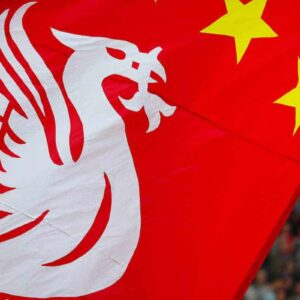


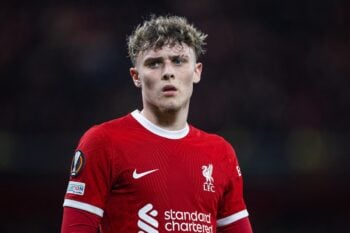
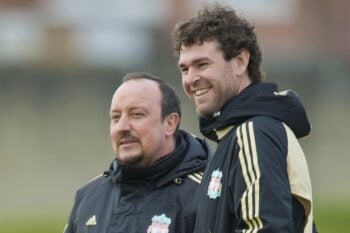

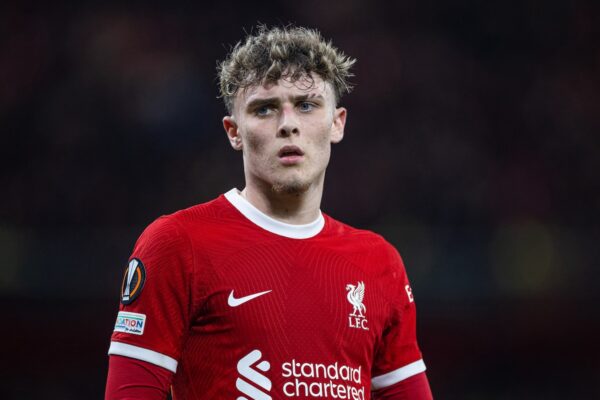
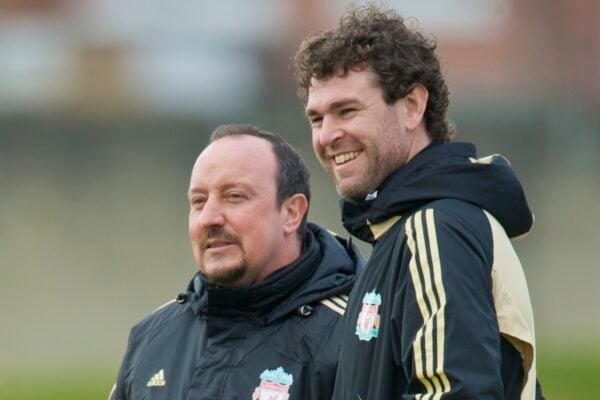

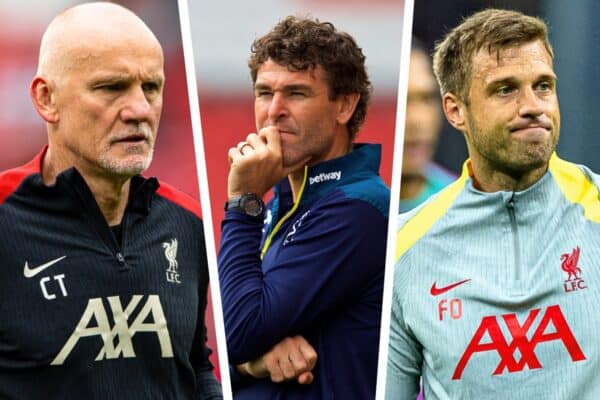
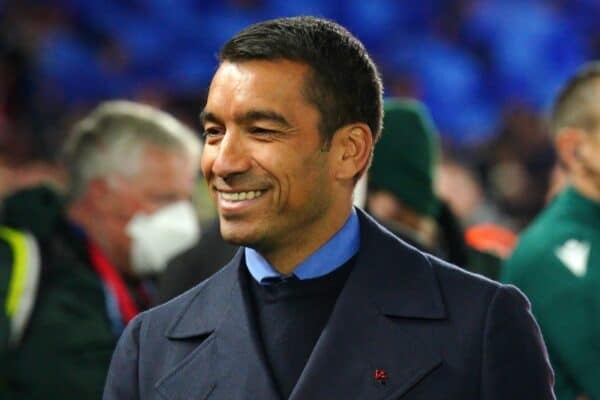
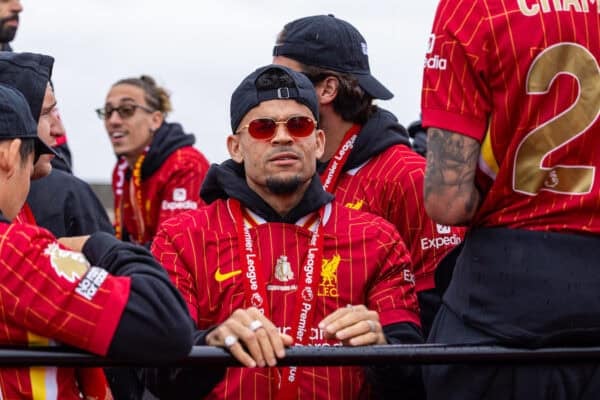
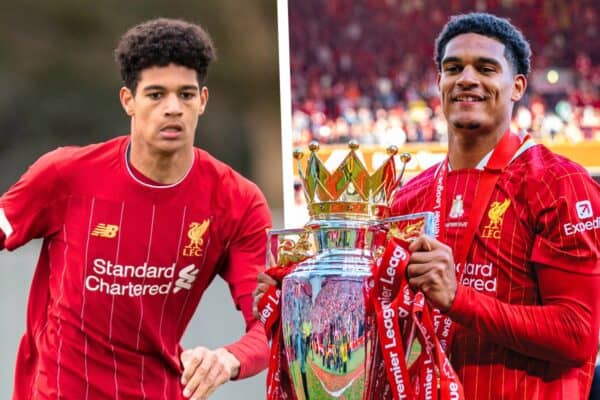
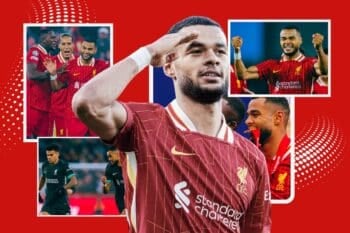


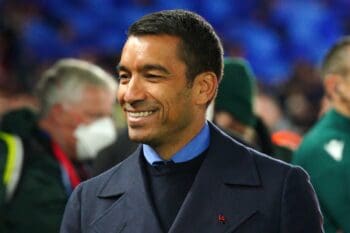
Fan Comments